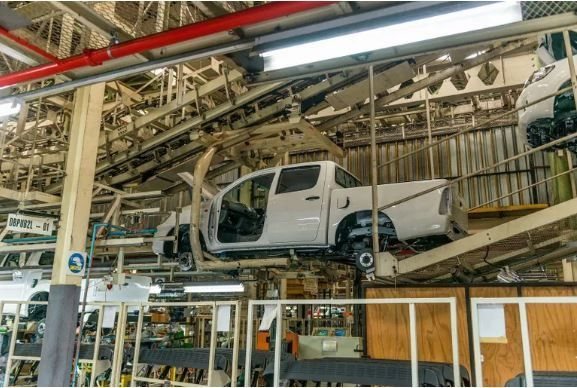
Subscribe & Follow
#AfricaMonth
In the news
KZN floods slow down SA's new vehicle sales momentum

Various key export markets continue to face multiple headwinds, including rising interest rates, supply chain disruptions, resurging Covid-19 waves as well as producer and consumer inflation at the highest levels in decades.
However, prospects for 2022 remain optimistic on the back of further new locally manufactured model introductions during the year and still good prospects for exports, despite moderating global economic growth.
Reflecting on the new vehicle sales statistics for the month of May 2022 Naamsa said that the new vehicle market’s performance during the month reflected the knock-on effects of the disruptions caused by the severe floods in KwaZulu-Natal as well as a myriad of headwinds increasingly impacting domestic economic growth and consumers’ disposable income.
Aggregate domestic new vehicle sales in May 2022, at 39,177 units reflected a modest increase of 819 units, or 2,1%, from the 38,358 vehicles sold in May 2021. Export
sales recorded a huge fall of 11,013 units, or 29,9%, to 25,786 units in May 2022 compared to the 36,799 vehicles exported in May 2021.
Overall, out of the total reported industry sales of 39,177 vehicles, an estimated 34,775 units, or 88,8%, represented dealer sales, an estimated 7,9% represented sales to the vehicle rental industry, 2,1% to industry corporate fleets, and 1,2% sales to government.
The May 2022 new passenger car market at 27,437 units had registered an increase of 3,318 cars, or a gain of 13,8%, compared to the 24,119 new cars sold in May 2021. The car rental industry supported the new passenger car market during the month and accounted for 10,0% of sales in May 2022.
Domestic sales of new light commercial vehicles, bakkies and mini-buses at 9,221 units during May 2022 had recorded a decline of 2,691 units, or a fall of 22,6%, from the 11,912 light commercial vehicles sold during May 2021.
Sales for medium and heavy truck segments of the industry reflected a good performance during the month and at 614 units and 1,905 units, respectively, showed an increase of 65 units, or 11,8% in the case of medium commercial vehicles, and, in the case of heavy trucks and buses an increase of 127 vehicles, or a gain of 7,1%, compared to the corresponding month last year.
The May 2022 exports sales number at 25,786 units reflected a substantial decline of 11,013 vehicles, or 29,9%, compared to the 36,799 vehicles exported in May 2021. For the year-to-date vehicle exports were now 6,2% below the level of the corresponding period 2021.
Devastating floods in KwaZulu-Natal, rising fuel prices
The new vehicle market during May 2022 mirrored the knock-on effects of the devastating floods in KwaZulu-Natal on the automotive supply chain as well as a tightening of domestic monetary policy, a further rise in loadshedding and the adverse impact of domestic and foreign factors on business and consumer confidence in the country.
In addition to the rise in interest rates of 50 basis points, the biggest margin in more than six years since January 2016, the depreciating Rand along with soaring oil price continue to add to inflation risks.
South Africans have seen fuel prices rise to record levels over recent months with a further massive increase announced for June 2022, despite the extension of the temporary reduction in the general fuel levy by government.
Although the economy will need to adjust to this new reality, long term solutions are required in an already unbearable inflationary environment which would worsen, along with negative secondary economic effects. On a positive note, the country has moved through its fifth wave of Covid-19 infections without the necessity of renewed lockdown restrictions
Related
Domestic car market shines amid global tariff pressures 6 May 2025 South Africa’s car sales hit two-year high 1 Apr 2025 South Africa’s car sales surge 7.3%—but exports take a knock 4 Mar 2025 SA's new car sales off to promising start in 2025 10 Feb 2025 BETI still treading water but positive economic trend continues 17 Dec 2024 Municipalities enter the climate crisis chat at built environment indaba 9 Dec 2024










